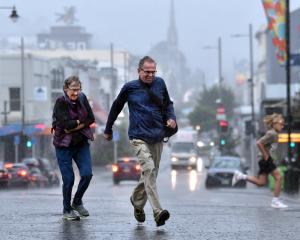And nearly a century later, his granddaughter Rae Paterson feels equally lucky to have a copy of the diary that details Mr Sutherland's experiences leading up to that fateful day.
Mr Sutherland came from Palmerston and served in World War 1 with the New Zealand Expeditionary Force in the 12th New Zealand Field Artillery, 11th Battery.
His hundreds of diary entries make riveting reading, particularly when his descendants tell the remarkable story of how he cheated death by carrying a bible in his hip pocket.
"He was shot and the bible took most of the bullet," Ms Paterson, of Albert Town, said.
Mr Sutherland was injured and was sent to the UK to recover, before returning home to New Zealand.
His diary dates from May 6, 1916, and tracks his movements from New Zealand to Egypt, where he was stationed at Tel-el Kebir, before being deployed to fight in Marseille and eventually Belgium. It finishes "mid-sentence" on March 21, 1918.
"We think that's when he got injured."
Ms Paterson said her grandfather had a "real talent" for writing.
"He's written it like a novel ...he documents absolutely everything. From going to church, to what they ate, to how much people were boozing. He tells all. It's a really amazing diary."
One entry the family particularly enjoy shows the Anzac spirit faltered on occasion.
"The beer was going down a good bit and as usual there was a scrap or two," Mr Sutherland wrote.
"An Australian soldier and an N.Zer [sic] had a good go, fought until they could do no more and then shook hands and went about their business."
Mr Sutherland's daughter (Ms Paterson's aunt) has the original diary in Auckland, along with the bullet-holed bible. However, she made copies of the treasured piece of war memorabilia for family members.
Ms Paterson's daughter, Lyla Chamberlain (7), has taken a special interest in Anzac Day since reading the diary.
"If it wasn't for that, it probably would have been much more difficult to get her interested ... it's something real and it's pictures of her great-grandfather. We're pretty lucky, really."
Mr Sutherland died in 1950 and was buried in Palmerston.














